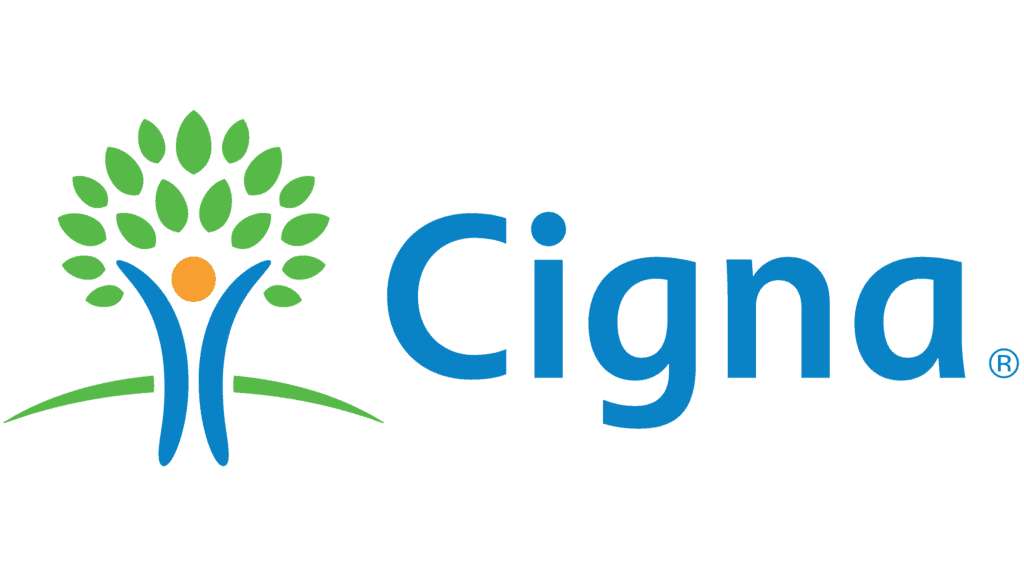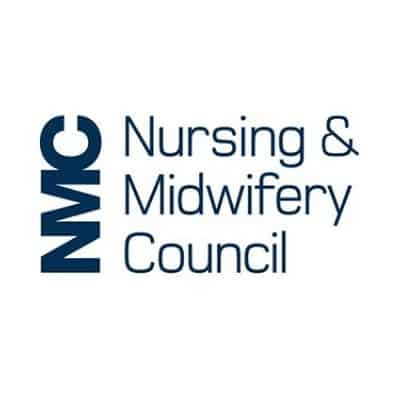Highly Rated


Approved by Major Insurers


Skip the queue and Book an Online GP Consultation for everything from check ups to prescriptions.
Skip the queue

Our teenager eating disorder treatment centre is here to provide an intermediate primary care service, offering specialist support and bespoke treatment plans to help end your teenager’s suffering.
From a safe and confidential environment, our qualified therapists and dieticians will carry out a thorough assessment, screening your teen against a range of disorders to help give you a diagnosis. Once diagnosed, we will be with you every step of the way with a multidisciplinary approach to help address all the factors that may be manifesting in your teenager’s disorder.
Our service for adolescent eating disorders is available for young people aged 12 who have a low weight for their height. Each 12+ child will undergo an assessment to determine their suitability for our program. If they are deemed unsuitable, this will be communicated after the initial appointment.
For younger children, eligibility will be considered individually. Please reach out to our team via email with your inquiry, and we will consult with one of our specialised dieticians to provide guidance.
We know only too well how difficult it can be for families who have concerns about their young person’s eating tendencies. That is why our team is here to offer support and advice to the wider family too. However, if reaching out to us is too difficult, why not start with BEAT?
BEAT is the UK’s eating disorder charity which provides a friendly voice on the other end of the phone from 3 pm to 8 pm, 7 days a week, 365 days a year. Whether it’s your teenager who reaches out or a family member, they will be happy to listen.
Your young person is never alone.
Contact BEAT today for confidential eating disorder support.
Eating disorders are serious mental health conditions characterised by disturbed eating habits, negative body image, and an obsession with weight and food. These disorders often have physical, emotional, and psychological components and can lead to severe health complications if left untreated. There are several types of eating disorders, with some of the most common ones including:
Eating disorders can have severe physical consequences, such as heart problems, electrolyte imbalances, gastrointestinal issues, and more. The emotional and psychological impact includes depression, anxiety, low self-esteem, and a preoccupation with food and body image.
If you are concerned about a teen’s eating habits, it's important to take those concerns seriously and consider the following steps to address the issue:
The most important thing you can do is to consult a healthcare professional experienced in eating disorders. Arrange an appointment with our professionals today.
Our service overview encompasses the following key components:
We can provide diagnoses and treatment plans for the following, including:
Speak to a friendly voice today.
BEAT are here for you too.
Eating disorders are complex mental health conditions characterised by unhealthy relationships with food, body image, and weight. There are several different types of eating disorders, each with its own set of signs and symptoms.
Here are the signs and symptoms of some of the most common eating disorders:
Our compassionate team understands the complexities surrounding eating disorders and is dedicated to providing comprehensive evaluations tailored to your teenager’s unique needs. Your first step is booking them in for an assessment. During this session, we'll collaborate with you to gain a deeper understanding of their struggles and develop a personalised plan for treatment and recovery.
If you have concerns about your adolescent's weight or eating habits, our healthcare professionals are here to help. Whether they have been previously diagnosed or you are looking to get ahead of a potential problem, we can help you and your teenager understand the signs and symptoms, and, more importantly, why they are presenting themselves. If you have worries, do not hesitate to contact our team.
Qualified dieticians play a crucial role in supporting young people with eating disorders by providing personalised nutritional guidance. They assess their nutritional status, collaborate with a multidisciplinary team, and develop a tailored treatment plan. Dieticians educate both the young person and their parents, addressing distorted eating patterns and promoting a positive relationship with food. They monitor nutritional intake, adjust meal plans, and address coexisting medical issues. Additionally, dieticians involve the family in the treatment process, contributing to a holistic approach that enhances the teenager’s chances of recovery.
Our team of dieticians is led by Arti Dhokia, a seasoned dietitian with over fifteen years of experience.
Arti specialises in eating disorders. Her expertise, showcased in reputable publications and media outlets, extends to various areas like diabetes, cardiovascular health, weight management, and gastrointestinal issues. Arti's compassionate care also includes supporting patients' families. Notably, she is adept at identifying and treating Avoidant/Restrictive Food Intake Disorder (ARFID), offering private treatment options.

Dr. Minnie Joseph is a Senior Consultant Child and Adolescent Psychiatrist with over 34 years’ experience in assessing and treating mental health conditions in children and young people. She has specialist expertise in neurodiversity (ASD, ADHD, PDA), complex trauma and borderline personality disorder. Dr. Joseph offers a holistic, patient-centred approach, combining psychiatric assessment, psychotherapy and medication management to support young people and their families.

Hema Patel is a compassionate Adult and Children Integrative Psychotherapist working with adults, children, adolescents and couples. She supports individuals and families in navigating emotional, psychological and relational challenges that can impact daily life and overall wellbeing.
Hema has experience across a broad range of therapeutic presentations and is also part of the Midland Health Eating Disorders (ED) team, where she works collaboratively within a multidisciplinary setting to support patients with complex needs.
In her work with adults, children and young people, Hema takes a thoughtful and collaborative approach, and when appropriate, involves families or partners to gain a deeper understanding of presenting difficulties and to develop practical, manageable support plans. She strongly believes in the effectiveness of talking therapies, providing a safe and independent space for clients to explore complex emotions and work towards meaningful, positive change.

Raj Bassi is a Cognitive Behavioural Therapist trained in Birmingham, London, and Liverpool. She emphasises collaboration towards therapy goals, building a therapeutic relationship based on trust and confidence by understanding clients' concerns and offering evidence-based psychological interventions. Raj enjoys helping patients identify and build on their strengths, learn problem-solving strategies, and enhance coping skills

Eating disorders have the potential to evolve into severe health concerns. Therefore, it is vital to get your teenager the guidance and proficiency of a seasoned team as soon as possible. We can arrange specialised appointments with eating disorder experts at your convenience. Instead of enduring lengthy waiting periods to see a specialist, you can secure an appointment within a few days.
We excel in delivering comprehensive treatments promptly to our patients. This is why our Birmingham clinic offers:
What Our Patients Say About Us
402 Total Reviews
Average Rating 4.4

Great, professional service as always at Midland Health.

T F | 28th Sep 2025
Midland Health

Dr. Pav Dhesi is really amazing and caring :)

Cecília Álvares | 21st Sep 2025
Midland Health

Thank you Dr Rupa Parmar you have been an amazing attentive person and I feel comfortable to discuss matters with you in your clinic and feel you are very knowledgeable and can provide solutions for my needs that I’ve come...

Pammy Bains | 21st Sep 2025
Midland Health

Fantastic!! Efficient service talking through process made my son feel comfortable most of all cleaned out his ears safely and to the best of ability.

Saima SARWAR | 18th Sep 2025
Midland Health

Second time here, all the staff are lovely and felt very welcomed at reception by Dia And health care assistants Vee Emily and Jo

Jaycoxhair | 9th Sep 2025
Midland Health

I saw Dr Sam Smith (gastroenterologist) at this practice. The information on the website was clear and helpful and making an appointment was easy.The practice is nice and modern and the admin staff were polite, kind and helpful, both on...

simone bacchini | 4th Sep 2025
Midland Health

This has been the best service I have received in my life. I am so grateful for the support I’ve gotten, it has been life saving. Thank you again !

Nafizah Bi farooq | 30th Aug 2025
Midland Health

Have used the services of Midland Health in two of their sites as I needed a Medical examinantion (and innoculations) to support a work permit application. The process has taken approximately 10 weeks fdrom start to finish and at all...

Sean OB | 26th Aug 2025
Midland Health

I had an appointment with Ms Fidan Bayli and was very pleased with the experience. She was very welcoming and gentle, and the examination never felt uncomfortable or rushed. I could truly feel her professionalism throughout the consultation. She gave...

Анна Гаджиева | 19th Aug 2025
Midland Health

Had a excellent service top notch I recommended anyone ear wax removal

Ahmed Mohamed | 15th Aug 2025
Midland Health

I have had two appointments with Dr Sam Smith, Gastroenterology and have been very happy with with my treatment and treatment plan, he was friendly and approachable which made me more comfortable to discuss any concerns. Overall very informative which has...

Romaine Sumner | 14th Aug 2025
Midland Health

We recently saw Dr Prasad Nagakumar for a clinic appointment for our daughter. He was very professional and empathetic and listened to all our concerns and answered all our questions. The staff at Midland Health in Edgbaston clinic were fantastic...

Sally El-Ghazali | 12th Aug 2025
Midland Health

I want to say a massive thank you to Dr Pav Hare for her outstanding service. I came in for an appointment, and she instantly put me at ease and started gathering an extensive history and my current concerns. Throughout...

Sahil | 9th Aug 2025
Midland Health

Highly recommend Dr Kudlur. Excellent service and prompt diagnosis. He has been brilliant at articulating the problem in a way that is easy to understand and helpful in creating tools to best manage my condition. I have seen vast improvement...

Angus | 31st Jul 2025
Midland Health

*I recently had a consultation with Dr. Dawson for my 4-month-old daughter, and I couldn’t be more grateful.** He is a highly qualified and understanding pediatrician, with a wonderfully caring approach to little ones. My baby was calm and relaxed...

Lesya Fedorovych | 28th Jul 2025
Midland Health

I recently attended Midland Health for a full Health Assessment/Medical Examination required for work purposes, and I couldn't be more impressed with the service I received.Dr. Pav Dhesi (GP) was fantastic—she was attentive, thorough, and took the time to listen...

Sabrina A. Said | 18th Jun 2025
Midland Health

Throughout multiple experiences over the past few months, the service has been consistently excellent. Appointment availability is remarkable – I'm always seen almost immediately, typically within a day or two at most.The GPs and consultants provide genuinely attentive care, listen...

Sibylle | 5th Jun 2025
Midland Health

Excellent doctor sam

time lapse | 30th May 2025
Midland Health

Midland Health has quite literally changed the course of my life.After years of struggling without answers, I finally took the step to get assessed for ADHD and ASD — and choosing Midland Health was the best decision I could have...

Unknown Reviewer | 27th May 2025
Midland Health

We visited Midland Health last week for some peadiatric blood tests. I had read some of the negative reviews posted previously so was a little hesitant, however from our experience it could not have been any better.We were greeted on...

Melanie Lovegrove | 27th May 2025
Midland Health

We are currently seeing Dr Rupa Parmar who has written up a personalised immunisation schedule for our baby daughter. Dr Parmar is excellent she's professional, listens, offers advice and genuinely cares. We are really pleased with the service we have...

Ellie Steer | 15th May 2025
Midland Health

We took our 4 month old daughter due to rash from suspected allergies, as NHS GP appointment did not lead to answers/ referrals. An appointment was available for two days later at Midland Health. Her allergies were confirmed in one...

Laura Bains | 4th May 2025
Midland Health

I had waited years on the NHS regarding my mild tongue tie. I had a frenectomy carried out by The NHS Coventry Hospital their maxilliofacial department, which was a bit of a fight to get as it seemed they considered...

Tasneem Abrahams | 29th Apr 2025
Midland Health

Excellent, service Dr Kudlur was very kind and knowledgable and didn’t interrupt me (Which I think would have been reasonable as I overran our time!)

Tom Owens | 23rd Apr 2025
Midland Health

From my personal experience, I am so grateful to be in a position where I was able to book a private assessment for diagnosing my ADHD with Dr Kudlur.Due to my circumstances, this prognosis required immediate action, whereas the NHS...

Jordan | 23rd Apr 2025
Midland Health

Mine experience was very good 👍. Dr very nice and polite. She checked my son very well and he improved .

Sidra Ahmed | 15th Apr 2025
Midland Health

Dr Naganna and the other members of the team were excellent when we attended with our daughter. They were thorough and answered all our questions. An excellent team and an excellent location

Kashini Andrew | 12th Apr 2025
Midland Health

I’ve had two treatments so far with Emma Conway, just want to say she is absolutely brilliant - still on the journey to achieve my results but she really makes an effort and cares, she provides great customer service even...

Saira M | 7th Apr 2025
Midland Health

Received excellent and consistent support with no issues and I recommend the service fully.

Callum Peters | 30th Mar 2025
Midland Health

Yes I was happy with my consultation

Sue Gardner | 28th Mar 2025
Midland Health
For those residing in Birmingham or its neighbouring regions, our outstanding clinic is conveniently located in the heart of Edgbaston, just a short distance from Birmingham City Centre. You can schedule an appointment with our specialists at our Highfield Road clinic, situated near the A456. Alternatively, if you're using public transportation, our clinic is easily accessible with just a 15-minute walk from Five Ways train station.
Highly Rated


Approved by Major Insurers


Our Accreditations





Midland Health has partnered with a highly reputable electronic prescription provider, SignatureRx, to make receiving your prescriptions faster and easier. With our new paperless system, you can choose to collect your medication using your secure prescription code or have it delivered directly to your home free of charge. There’s no need for paper prescriptions or multiple pharmacy visits.
To find out more about our digital prescription service please click here.
Ask us anything about this service, other services or
Midland Health and we'll get straight back to you.

Find Out More
Contact Our Support Team on WhatsApp